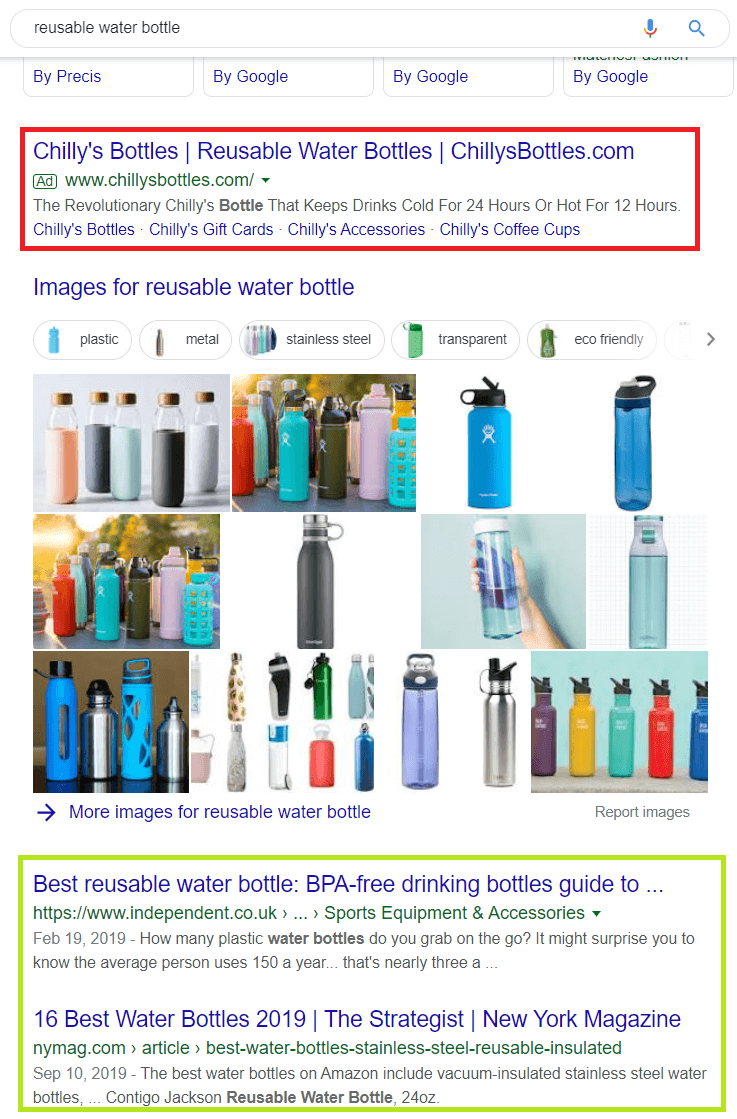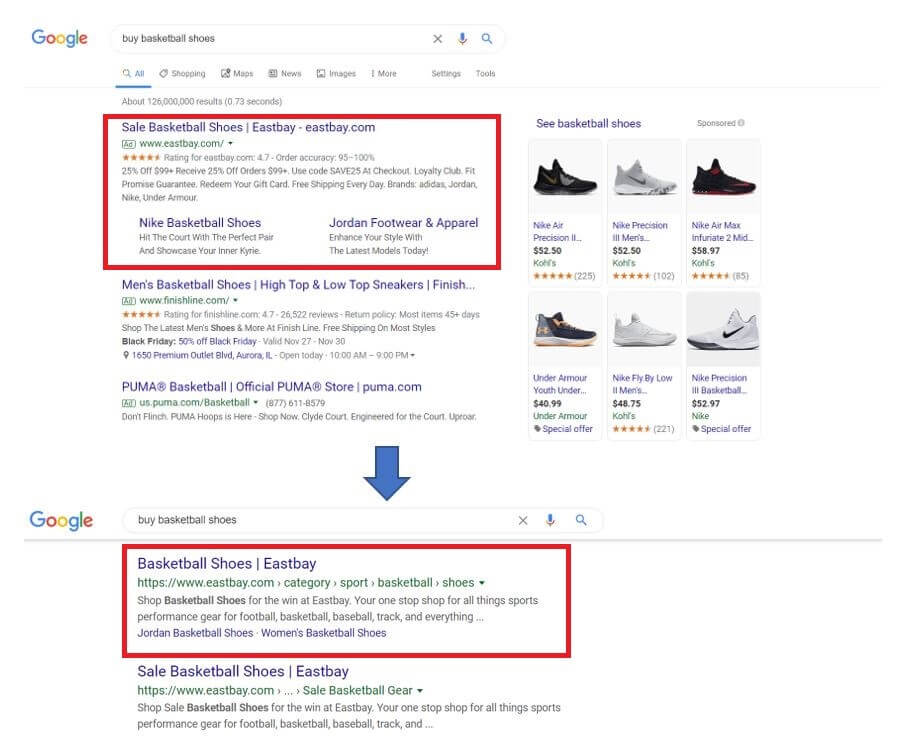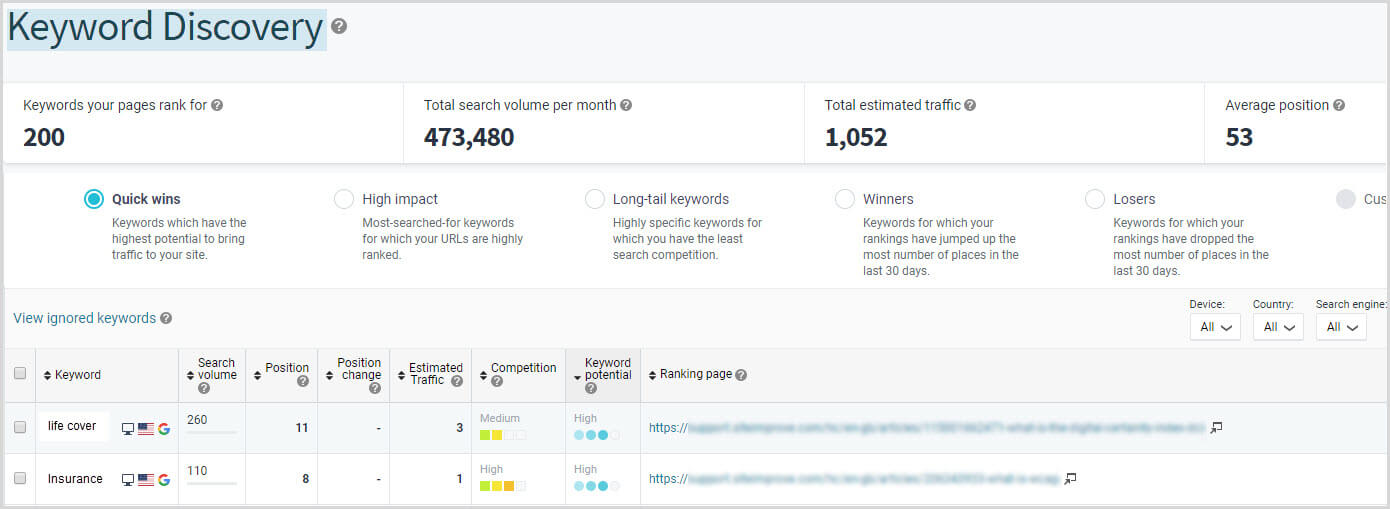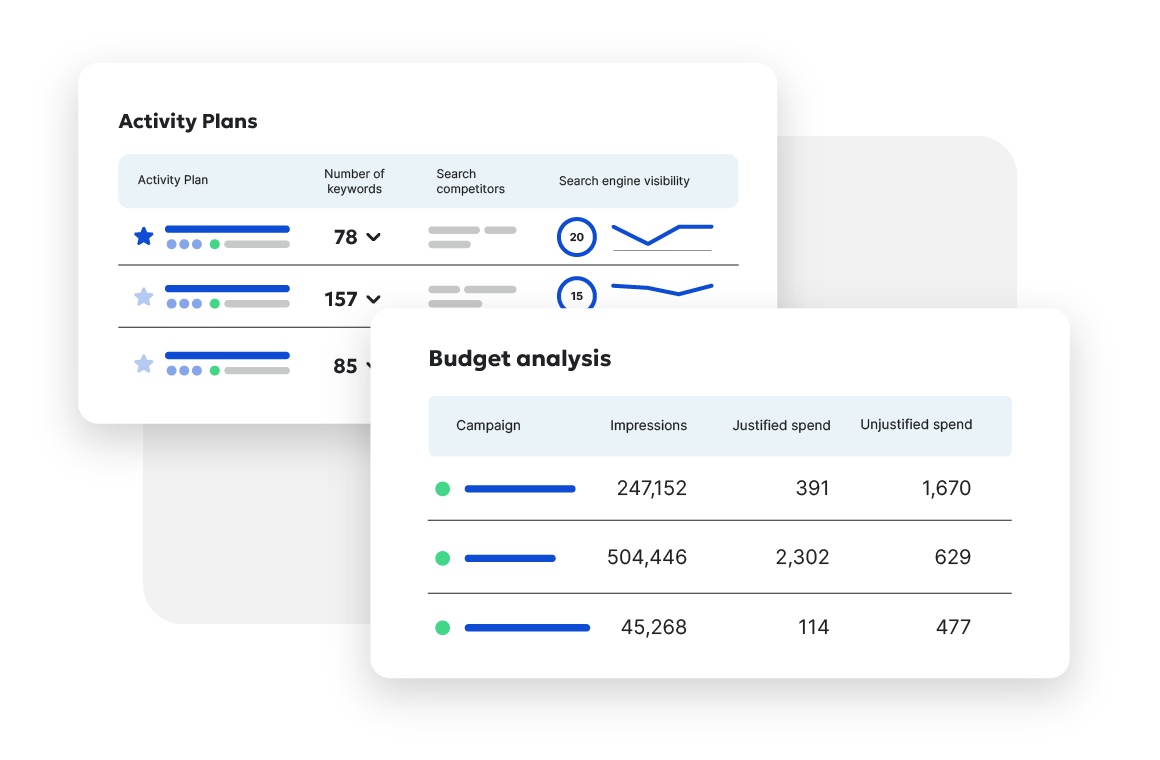One of the biggest mistakes that companies make with their digital marketing efforts is siloing their activities so various campaigns, channels, and strategies operate as singular entities rather than holistically. This hurts your brand’s consistency, makes it more difficult for consumers to find you, and can even create more work for your organization in the long run.
When this happens with your SEO and pay-per-click (PPC) campaigns, you can wind up wasting time and money on ad spend and content production.
So, what’s the better way to go about it? Make your organic and paid search strategies work together.
SEO vs. Paid Search
Both SEO and paid search have the power to elevate brand awareness and bring more traffic to your page. Their main differences are:
- You don’t have to pay every time someone clicks your organic content, but you do pay for clicks with PPC - this can be expensive.
- PPC ads are housed at the top of the search results page, while SEO content can appear in rich snippets or regular search results.
The image below shows an Ad, accompanied by the Google Ad logo, at the top of the screen. The two results underneath the image results are SEO content from authoritative websites.

Paid Search
Of the 3.5 billion searches made on Google each day, nearly half (48.6%) result in pages with PPC ads at the top of them. Many companies see that paid search gets them the top spot quickly for their chosen keywords and automatically assume that’s the more beneficial strategy.
However, there’s more to the story. Research shows that 94% of searchers skip right past the paid ads on top and directly to the organic results below. What you gain in brand visibility and targeting capabilities, you possibly pay for in overall traffic, and it’s not a cheap loss.
SEO
SEO, meanwhile, doesn’t require you to pay when users click your link, but that doesn’t mean it’s free. Getting a featured snippet or landing a spot on the first page of results requires a strong foundation of good technical SEO, page and domain authority, and an investment in content research and creation. Particularly for smaller or newer businesses, the results are unlikely to be immediate, and for highly competitive keywords, you may be outgunned if relying on organic search alone.
To get the most visibility — and traffic — for your website, it’s wise to invest in both PPC and SEO and to ensure both strategies are working in tandem. Let’s learn how.
How to Integrate your Organic and Paid Search Approach
Consider Eastbay, a sports apparel retailer. When you search “buy basketball shoes,” they show up as the first paid result, as well as the second (and third) organic result.

By combining their paid search and SEO strategies instead of just relying on one or the other, Eastbay increases their exposure for a crucial keyword. They also increase their traffic, since many of those people who skip over the PPC ads on the top of the page are going to end up clicking on Eastbay’s organic links. Below we share four ways to align your SEO and PPC strategies and boost your search traffic and conversions.
1. Map Your Marketing Funnel to Search Intent
Before you can discern which keywords are best for PPC and which are better for SEO, it's important to take some time to identify the kinds of searches people are likely to conduct at each stage of the funnel.
Try this: Look at your marketing funnel and map out search intent and keyword ideas. What kinds of searches would your ideal customers conduct in each stage? If you’re an accounting firm, here’s what your notes might look like:
| Funnel stage | Ideal customer's search intent |
| Top funnel |
|
| Middle funnel |
|
| Lower funnel |
|
2. Choose the right keywords and phrases
Next, explore keyword ideas for each section of the funnel. Continuing with the example above, here are a few:
| Funnel stage | Keyword ideas |
| Top funnel |
|
| Middle funnel |
|
| Lower funnel |
|
Use a search engine marketing tool. While you can brainstorm keywords using Google, you’ll have the most success discovering the best keywords with a search engine marketing tool, like Siteimprove Keyword Discovery, that can show you key data like search volume, competitiveness, and estimated cost per click. Not only will this help with budget planning for your paid ads, but it’ll help you discover search you might not have considered — meaning your organic content can fill that gap.
When choosing your final target keywords, here are a few things to keep in mind:

Aim for the right traffic, not the most traffic. The more clicks you get from your PPC ad, the more you’ll have to pay — so it makes sense to target only those users who are ready to make a purchase. An easy way to hone in on the audience you really want is to Google your target keyphrase and study the results. Are the organic results similar to your business and niche? If not, experiment with new wording to find keyphrases that are a closer match to your users’ language.
Include long-tail variations. When you select long-tail keywords, you’re narrowing down users to only those who very closely match your target audience. Ideal long-tail keywords for PPC campaigns often include words like “buy,” “cheap,” “order,” and “best.”
Target local keywords. Targeting local keywords for your PPC campaign can give small businesses a major boost in visibility — especially if they already have an active “Google My Business” page.
Pair SEO with PPC for a stable reputation. While PPC can help you score conversions fast, users are more likely to trust organic content over paid ads. If you’re ever faced with a public relations issue, your hard-earned organic content will help uphold your positive reputation.
3. Double Up Existing Data
If you’ve been running PPC and SEO campaigns already, use the data you have to inform your future strategy. For example, if you have a keyphrase that’s doing really well in a PPC campaign, use that same keyphrase for SEO and see if you can dominate the organic results as well.
This is especially useful for growing brand awareness and trust, since users will see your brand twice in search results. Even if they’re not the type to click ads, just the presence of your brand name at the top of SERPs will keep your business top-of-mind.
4. Harness the Power of PPC Remarketing
Remarketing is one of the best ways to use PPC to amplify your SEO efforts. With this strategy, you use paid search to re-engage with people who have shown initial interest in your product or service through organic search. These leads are further along in their journey than general searchers. Simply put, they’re likely to be a better investment.
That initial touchpoint is one of the key purposes of all search strategies. Once you get it though, you must be even more strategic about facilitating future engagement. By building on your SEO with PPC remarketing, you bolster your positioning and stay top-of-mind when and where it really counts. You also get the opportunity to put forth more personalized, more targeted paid search ads.
Key takeaway: When you integrate your organic and paid search efforts, rather than running them in isolation, you get improved outcomes for less money, and more powerful insights to help guide your future search marketing efforts.

Ready to improve your Search Engine Optimization?
Siteimprove SEO is an all-in-one Enterprise SEO tool that can help you achieve your digital potential.
Schedule a demo